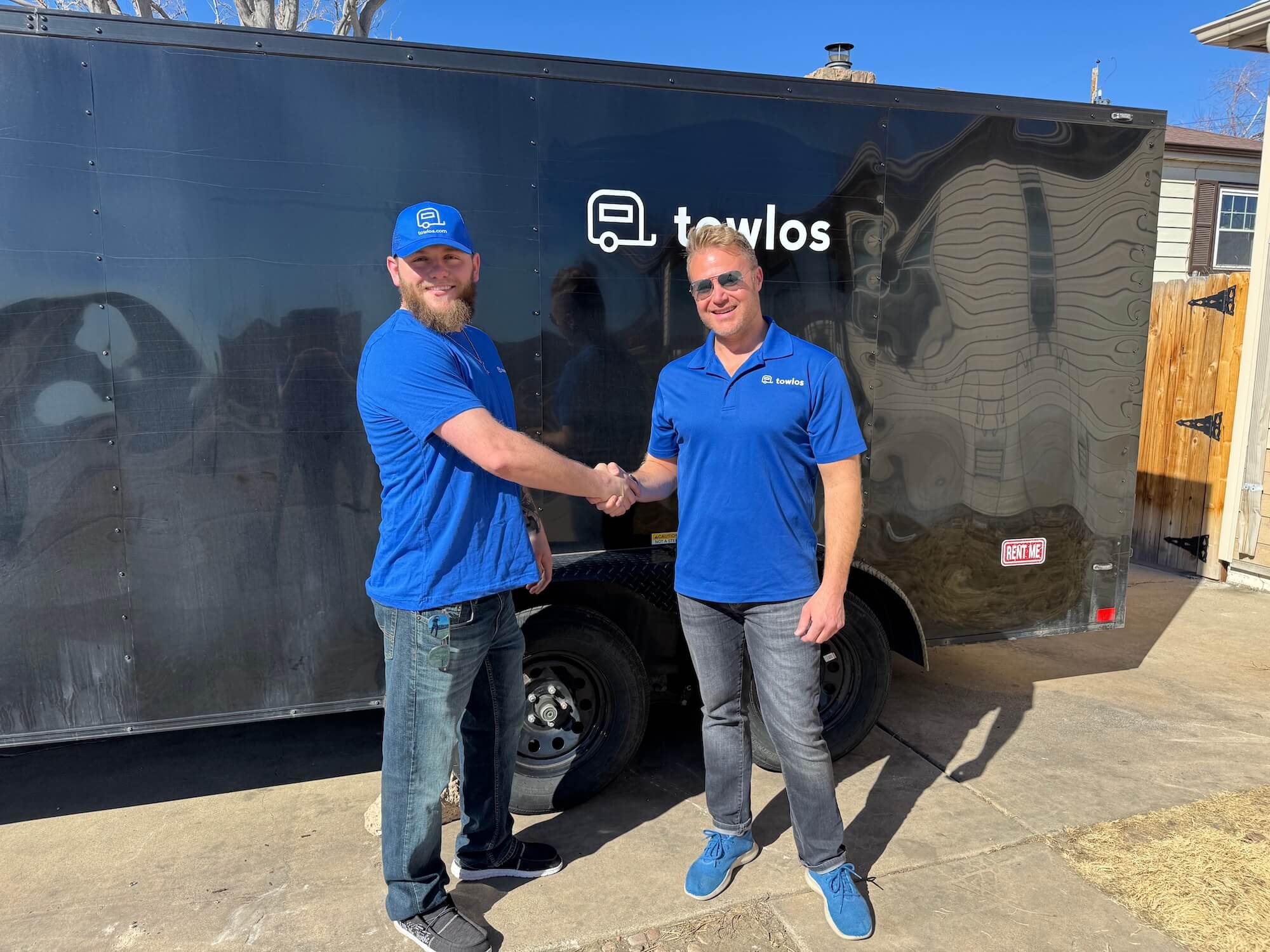 towlosProtect+
towlosProtect+
A better way to insure your trailer rental
For Guests
Never Worry about Unexpected Damage Costs
The biggest concern when renting a trailer? Being stuck with a massive repair bill if something goes wrong. TowlosProtect+ solves that.
With Protect+ insurance coverage, accidental damage during your rental is covered up to $35,000 – so you'll never face unexpected out-of-pocket costs that could ruin your trip.
How Does It Work?
Select your preferred Protect+ Plan:
Basic Plan
- Lower daily rate
- $1,500 deductible
- Coverage up to $35,000
Premium Plan
- Higher daily rate
- $500 deductible
- Coverage up to $35,000
You'll select your plan at checkout. Daily pricing is based on the trailer's value, type, and rental duration. Not all trailers are eligible, so look for trailers displaying the Protect+ badge when browsing.
What's Covered?
Protect+ covers physical damage to the trailer during your rental period, including:
- Collision damage
- Impact damage
- Accidental loading/unloading damage
- Theft
- Vandalism
Important: This coverage protects against damage to the trailer only. Liability claims, bodily injury, and damage to or loss of cargo are not covered.
What's Not Covered?
- Damage that occurred before or after your rental period
- Normal wear and tear (tires, brakes, wheel bearings)
- Your cargo or belongings
If Damage Happens
- Your host will initiate a damage dispute
- If repair costs exceed your security deposit, you'll file a Protect+ claim
- Our towlos Solution team responds within 2 business days
- Most claims resolve within 5-7 business days
More Questions?
See our FAQs. For more detail, see the towlos Terms of Use.

Towlos is here for you
At towlos, we are dedicated to delivering the best towing experience possible. That means offering unique trailers you won't find at big retailers, the personalized service from owners who genuinely care, and Protect+ – peace of mind insurance when you need it most.
Don't settle for less – don't settle for rentals without coverage, or the support of a community like towlos. We're here for you, every mile of your journey.
Towlos is here for you
At towlos, we are dedicated to delivering the best towing experience possible. That means offering unique trailers you won't find at big retailers, the personalized service from owners who genuinely care, and Protect+ – peace of mind insurance when you need it most.
Don't settle for less – don't settle for rentals without coverage, or the support of a community like towlos. We're here for you, every mile of your journey.
For Hosts
Top of PageAdd Peace of Mind to Your Listing – At No Cost to You
TowlosProtect+ is completely free for hosts. Guests pay for the coverage, but you get the benefits.
Protect+ works alongside any insurance you already have – there's no conflict or requirement to change your existing coverage.
Why Guests Love Protect+
Many renters worry about being stuck with huge repair bills if something goes wrong. That fear can stop them from renting.
Protect+ removes that barrier by covering accidental damage up to $35,000 during the rental period. Guests choose between two deductible options ($500 or $1,500), giving them peace of mind and making them more likely to complete their booking.
How It Works for You
Making your trailer eligible is simple and completely optional. Once enabled, your listing displays the Protect+ badge, making it more appealing to renters. For specifics on how to make your trailers eligible, see our FAQ.
If Damage Occurs
- You initiate a damage dispute through your Host HQ
- If repair costs exceed the security deposit, the guest files a Protect+ claim
- Our Solution team handles everything and responds within 2 business days
- Most claims resolve within 5-7 business days
- We find the fastest solution to get your trailer back on the road
What's Covered?
Physical damage to your trailer during the rental period:
- Collision damage
- Impact damage
- Accidental loading/unloading damage
- Theft
- Vandalism
Insurance coverage is up to $35,000 per incident.
Important: This coverage protects against damage to the trailer only. Liability claims, bodily injury, and damage to or loss of cargo are not covered.
What's Not Covered?
- Pre-existing damage
- Normal wear and tear
- Damage outside the rental period
More Questions?
See our FAQs. For more detail, see the towlos Terms of Use.

Towlos is here for you
At towlos, we are dedicated to delivering the best towing experience possible. That means offering unique trailers you won't find at big retailers, the personalized service from owners who genuinely care, and Protect+ – peace of mind coverage when you need it most.
With traditional insurance carriers dropping coverage across the country, Protect+ provides the stability and peace of mind both hosts and guests deserve. Don't settle for less – don't settle for rentals without coverage, or the support of a community like towlos. We're here for you, every mile of your journey.
Towlos is here for you
At towlos, we are dedicated to delivering the best towing experience possible. That means offering unique trailers you won't find at big retailers, the personalized service from owners who genuinely care, and Protect+ – peace of mind coverage when you need it most.
With traditional insurance carriers dropping coverage across the country, Protect+ provides the stability and peace of mind both hosts and guests deserve. Don't settle for less – don't settle for rentals without coverage, or the support of a community like towlos. We're here for you, every mile of your journey.

